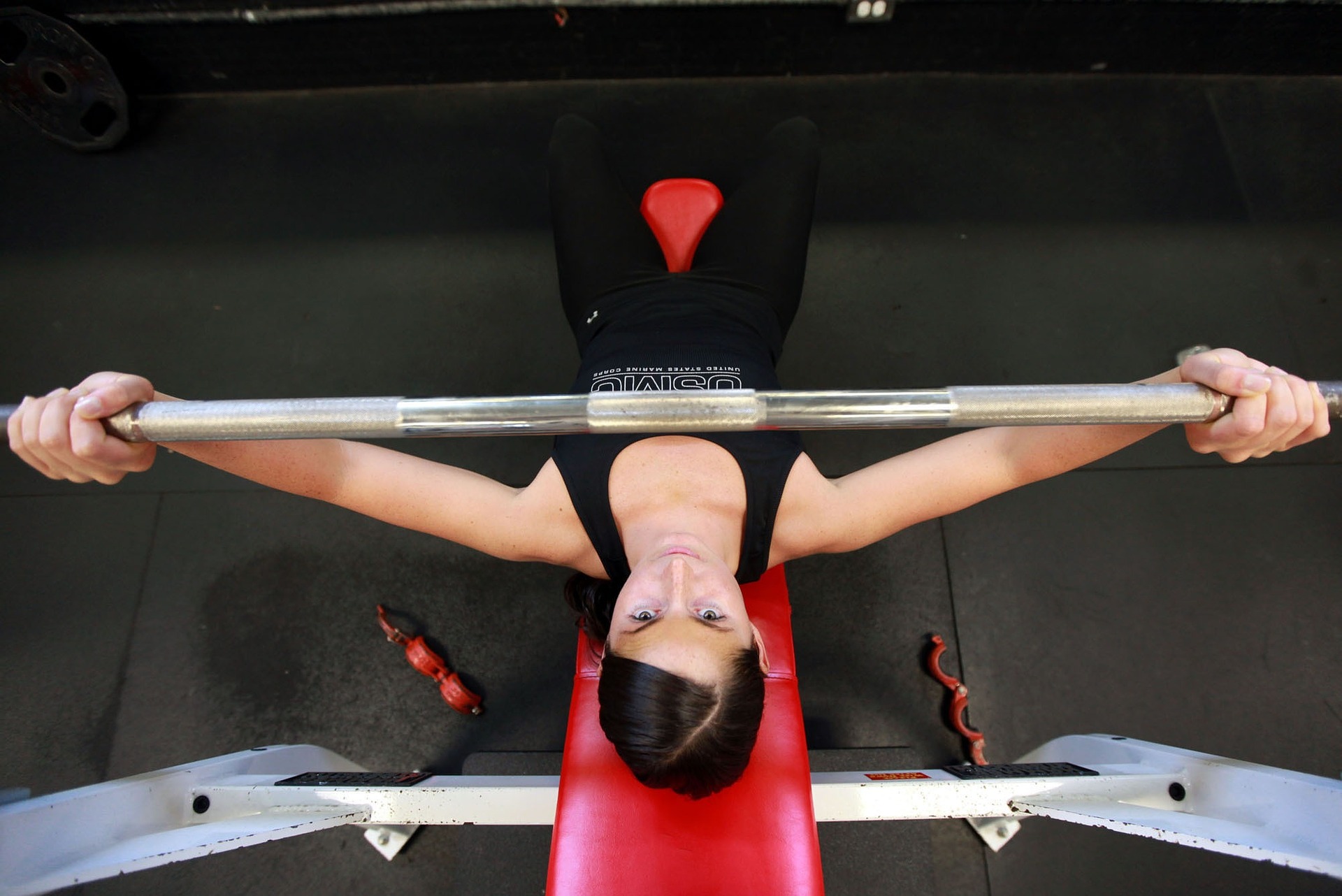Losing fat and gaining muscle at the same time is the holy grail of fitness. Is it possible? Can you do it? How would you make it work?
These are some of the common questions that get debated all the time, but we’re here to put them to bed. We’re going to tell you why yes, you can lose weight and gain muscle concurrently, and what sort of supplements and methods you’ll need to focus on to achieve it.
Stick with us if you’d like to get stronger, more muscular, and leaner all at once. It’s no bro-science, and this is your one-stop guide to supplementing and training for body recompositioning!
We’re going to use the Opti-Nutra Performance Lab range of products to demonstrate our points on what supplements should be used and why. This is due to the quality and nature-identity of these products, and for the sake of avoiding lower-quality supplements which pervade the market.
We think these are great examples of product for recompositioning since they are nature-identical, reliably high quality, avoid proprietary blends, and have complete transparency with their products. It’s a great example because it does what a supplement should, with no fuss or shady practice.
If we’re going to discuss the best supplementary ingredients, we may as well address our favorite examples on the market!
What is Body Recompositioning?
Recompositioning (or Recomping) is a term for the process of losing fat and gaining muscle at the same time. It’s a contentious subject in fitness because everyone wants to do it, but it’s hard to achieve and a surface-level understanding of the science makes it seem impossible.
The idea for Recomping is simple: you need to produce systematic energy-deficiency, while keeping muscle tissues nourished and energy-abundant. Your body needs to be in deficit, while muscles are supported directly with the right nutrition/training conditions.
Recomping is common in new trainees: during your first few months of weight training, you’ll notice significant muscle gain and fat loss at the same time. This is because your body is responding to a totally new stimulus and the hormonal/structural response promotes muscle gain and fat loss.
In simple terms, resistance training adjusts your “resting” preferences for storing fat and building muscle. However, it gets more complicated and difficult when you’re a more-trained individual – that’s what we’re going to be talking about.
What can/should supplements do for body recompositioning?
When we’re trying to produce systematic energy deficiency, the obvious choice is reducing calories. This is how you produce the fat-loss results, but it does make muscle-building more difficult. If you do it wrong, muscle-loss is a legitimate possibility.
During an overall calorie deficit, muscles want to break down. Supplementation allows you to provide the nutrients that are crucial for muscle maintenance, recovery, and growth without adding more calories to your diet.
There are two stages you can look at this with:
- Combating the reduced food/nutrient intake that comes from a fat-burning diet
- Providing specific pro-muscle nutrients to repair and build muscle mass
These overlap significantly, but they’re separate and as we discuss the best supplements for recompositioning, the difference will be important!
When it comes to the choice of supplementation, it’s important to focus on quality over quantity. Getting better quality, bio-available, high-uptake supplements is more important than bombarding your body with a million unnecessary compounds.
We’re going to focus on a few key, scientifically-proven useful supplements from high-quality sources.
Best Supplements for Recompositioning
B vitamins
B vitamins are key to supporting proper energy balance and metabolism in the body. You should be considering getting more B vitamins whatever your goal – they’re key to health and wellbeing.
However, during a calorie-restricted diet they can be a serious player in better Recompositioning. This is about supporting proper energy balance and avoiding deficiency, rather than specifically building muscle mass.
If you’re deficient and you’re producing poor energy levels in the muscles themselves, you’re going to run into problems Recomping. That’s to say nothing of the health and fitness problems associated with B vitamin deficiencies!
These are notoriously difficult to get in a bio-available format, however, which is why we love the Performance Lab Whole-Food Multi. This provides nature-identical forms of difficult vitamins like B6 and B12, which are key to energy metabolism and provide the perfect supplement for Recomping.
High Quality Protein Powder
A good protein powder is going to be important to support the quality of your overall diet. Protein is one of the most important nutrients on any weight-loss diet and this is only more so for those diets that are aimed at building muscle while also losing fat.
You can get plenty of protein from food, but a protein powder that supports your nutrient demands is really useful. Protein powders allow you to get more protein into your diet – in a convenient form.
This is handy for nailing your nutrient timing. This isn’t about chugging a shake 30 seconds after your workout – but just making sure that you’re replenishing protein and energy stores after training.
These smaller details are usually not super-important, but they make more of a difference with a recomp diet. Because the goal is more difficult, these small changes make a big difference to your results.
Protein powders offer easy access to more protein which means happier muscles and better chance of recompositioning effectively
Creatine
Creatine supplementation is perhaps the most important single choice for Recomping. Creatine is a key player in cell energetics – especially in muscles – where it produces the local energy-abundance we mentioned above.
If you’re supplementing creatine during a fat loss/muscle gain phase, you’ll keep the muscles from breaking down and have better workouts. This helps you maintain/build muscle and strength and keeps muscular energy levels up even when dieting.
Check out the science:
Creatine supports better cell energetics in muscle tissues
Creatine supports better repeated-performance of high-intensity lower body exercise
Combining creatine with “osmo-regulators” is also great for cell hydration. These compounds draw water into muscle cells which supports recovery after a workout, combats muscle-loss, and helps build more muscle size.
Getting creatine post-workout with electrolytes and a nitric oxide booster, such as the Performance Lab SPORT Post-Workout (with creatine and pomegranate extract) can support post-workout recovery and cell hydration. This provides a fantastic recovery and growth stimulus all at once, improving your long-term results.
Leucine and HMB
On the other side of things, leucine and its metabolite HMB are important for opposite reasons. Leucine is the most important BCAA and supports muscle growth, while HMB is a powerful anti-muscle-breakdown nutrient.
Leucine is the indicator amino acid that is used to trigger muscle protein synthesis. Basically, if you’ve not got enough leucine in your system, your body thinks you’re too low on protein to keep your muscle mass.
Firstly, you need to make sure you’re getting plenty of protein and leucine to support muscles. A high-quality protein powder can help here, providing both of these nutrients. However, it’s also possible to supplement pure leucine and – above 6g – this can be effective for building muscle.
HMB – a form of Leucine – is also amazing for fighting off muscle loss. It doesn’t build muscle, but it can reduce your muscle-loss while you’re at a calorie deficit. This makes it perfect for supporting recompositioning if you’re really trying to lose fat but not muscle.
Supplementing Leucine and/or HMB can be a great way to shift your weight-loss towards fat, rather than burning muscle. These compounds can be found in a supplementary dose in the Performance Lab SPORT Fat Burner, as they’re very difficult to get from the diet directly.
Non-Supplement Tips for Recomping
Slow weight-loss
Recompositioning only works if you’re patient. Weight loss speed is one of the key factors in how much muscle you can maintain/grow.
Simply put, the faster you try to lose fat, the more likely you are to break muscle down. Studies show that the best approach is to aim for around 0.4-0.7% bodyweight loss per week. If you go too fast and rush your calorie-restriction, you’ll not see any muscle gains.
You simply reduce your calorie intake by (for example, when losing 0.5% per week):
Your bodyweight (in grams) × 0.5%
Take your time – if you recomposition slowly, you’ll see much more significant results. Put more concern into the end result than how fast you lose weight and you’ll end up with a much stronger, leaner physique.
Resistance training is #1
Everything we know about losing weight and recompositioning says that resistance training is absolutely essential.
Heavy lifting is a key player in maintaining muscle mass during a weight-loss diet, as well as being the most effective way of producing muscle growth.
Weight training is going to be your best friend for effective body recompositioning. It burns fat, spares muscle, and builds muscle – all key changes for producing a better, stronger, healthier physique.
It’s not optional: if you want to recomp, you need to train heavy.
Protein-Carb intake is crucial
Your diet needs to be rich in carbohydrates and proteins to effectively recomposition. These are the key nutrients in supporting muscle recovery/growth, as well as being important to combat the signals that break down muscle during a weight-loss diet.
In key studies, athletes train 3-4 times a week with weights and other forms of resistance. 3 sessions are likely going to be optimal for most people, especially if there are significant time restraints for your workouts – but any less will be a problem.
Protein intake should be 1.2-1.8g per kg of bodyweight (roughly 0.75-1g per lb.), while carb intake should be matched to how much exercise you’re doing and ranges from 4-6g per kg of bodyweight (2-3g per lb.).
Reduce stress, train smart
More stress means worse recovery, which means less muscle growth and more risk of muscle loss. This means you should be actively managing your stress levels during a recomp.
Spend time actively relaxing with non-ruminative (relaxing/non-hype) activities such as yoga, walking, and other forms of low-level activity. This will help you reduce stress, improving your overall hormonal environment for success.
Muscle Damage – Growth stimuli
All exercises combine muscle damage with muscle-growth stimuli. Muscle damage is an inevitable but undesirable change, while tension and metabolic change in a muscle are the goal since they produce strength and size.
When Recomping, you need to be very careful with training. Overtraining is easier when you’re on a calorie-restricted diet since you’ve got limited nutrients and energy.
Training should maximize muscle growth stimulus while reducing muscle-damage. There are a few simple principles that can help with this:
- Perform workouts with challenging weights to keep intensity high and preserve muscle
- Don’t train to failure, as this induces greater muscle damage without much more muscle growth
- Work in the 3-8 rep range
- Finish workouts with higher-rep “pump” exercises to improve cell hydration and recovery
- Train with as much frequency as you can comfortably recover from, rather than huge sessions
Focus on your recovery
Whatever your goals, you should be putting time and effort into better recovery. This is when the fat loss and muscle gains occur, so you should be prioritizing recovery factors like sleep, nutrition, active recovery, mobility work, and other methods.
These improve your ability to recover, as well as reducing systematic stresses. You want energy-restriction, but not systematic stress or hormonal disruptions, so taking care of your body is crucial.
Closing remarks
Burning fat and building muscle at the same time is entirely possible – it just requires attention to detail. It’s a process that most people will never deal with but can with proper nutrition and training.
Supplements can be a really effective way of supporting recompositioning. Key supplements like creatine are effective in producing better muscular energy, which is a significant boost to your overall results.
There’s no way of supplementing your way around a poor or inconsistent diet, but supplements can significantly improve the outcome of a recomp diet. Proper choices and dosages are key, and the compounds we’ve discussed today give you the best chance of making it work for you.
Being patient, supporting energy levels with proper nutrition and supplementation, and training/recovering smart can provide amazing results. If you’re ready to commit, body recompositioning is both possible and offers amazing results!
The science behind the advice (these are all amazing resources and we recommend checking them out for yourself!):
[1] YOU CAN LOSE FAT AND GAIN MUSCLE AT THE SAME TIME
[2] Weight loss can produce losses in muscle mass
[4] Protein requirements are greater in those cutting weight and building muscle
[5]
[7] Leucine is crucial to the muscle-building process and can support better results
[8] HMB – a Leucine metabolite – supports muscle during calorie restriction
[9] Stress is a significant factor adjusting exercise performance and recovery
Add The Sports Daily to your Google News Feed!









